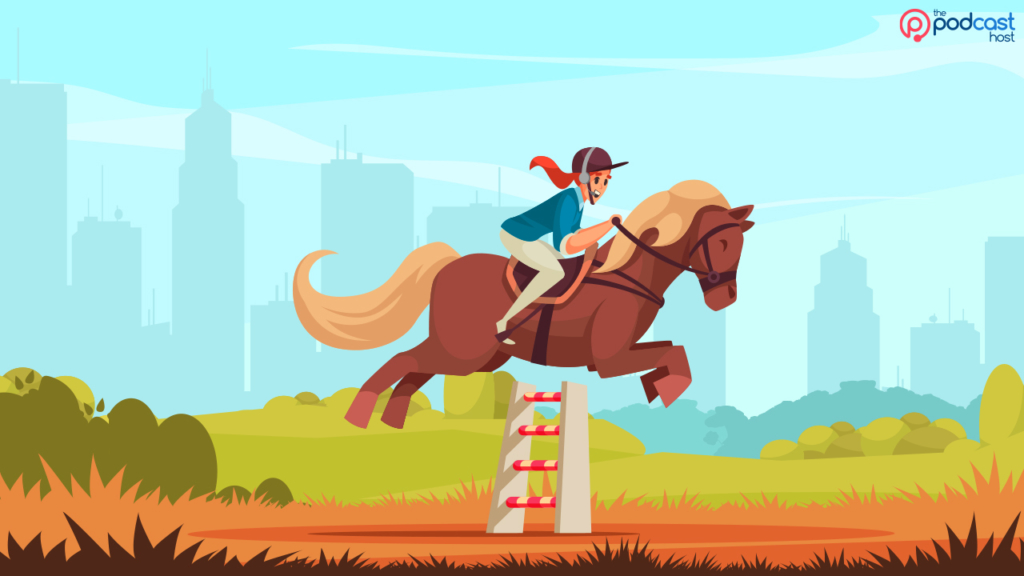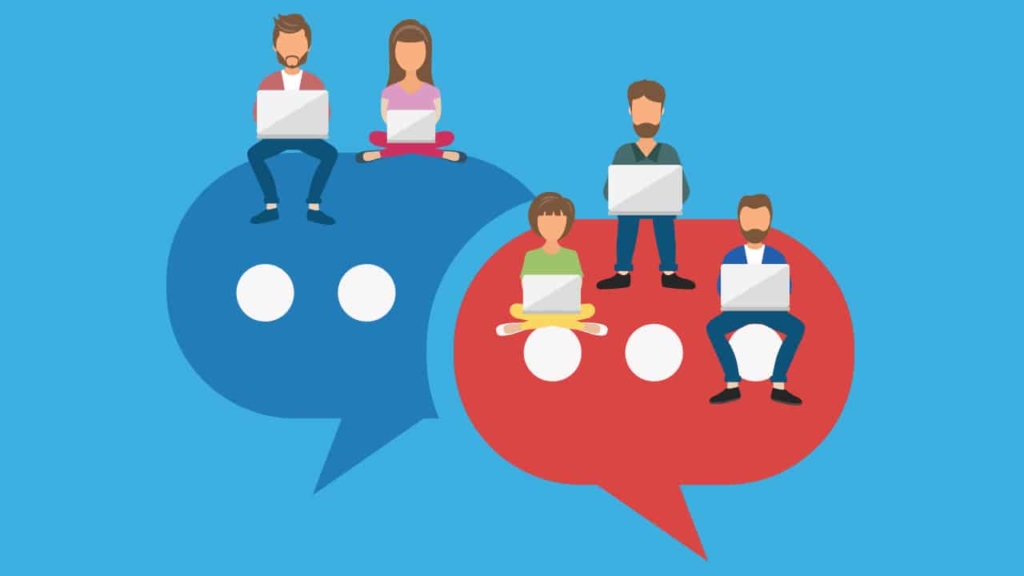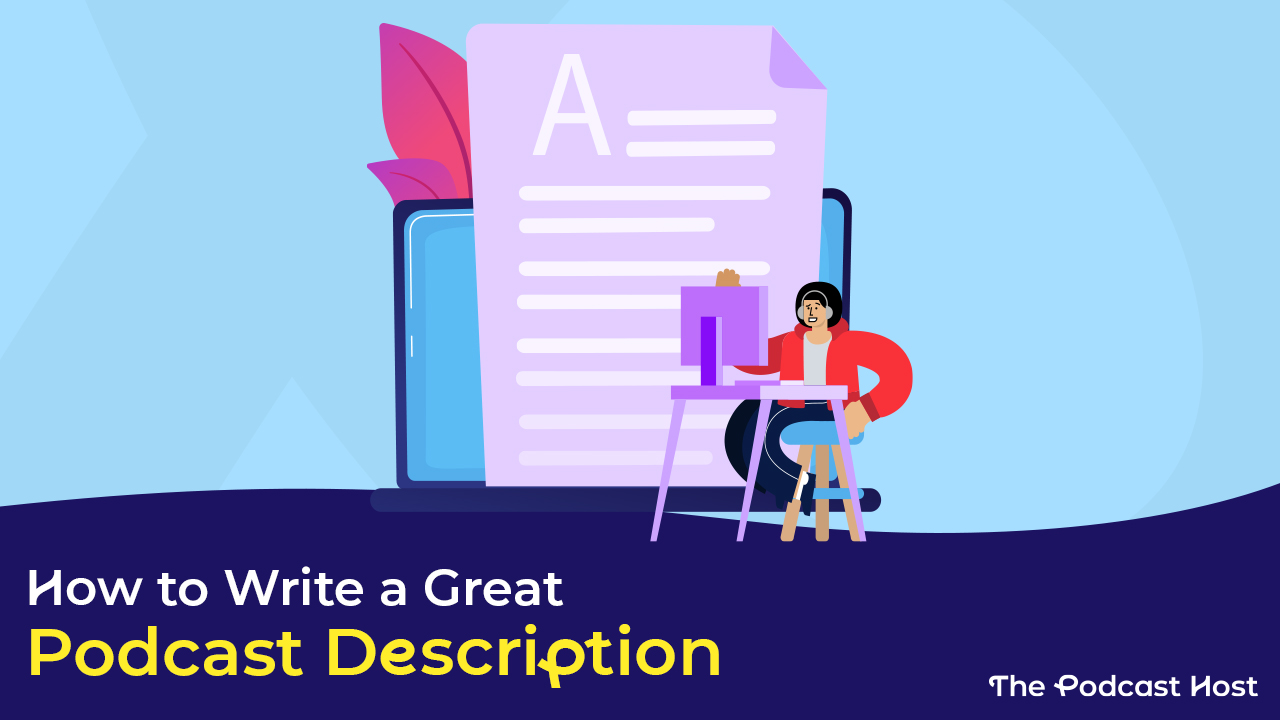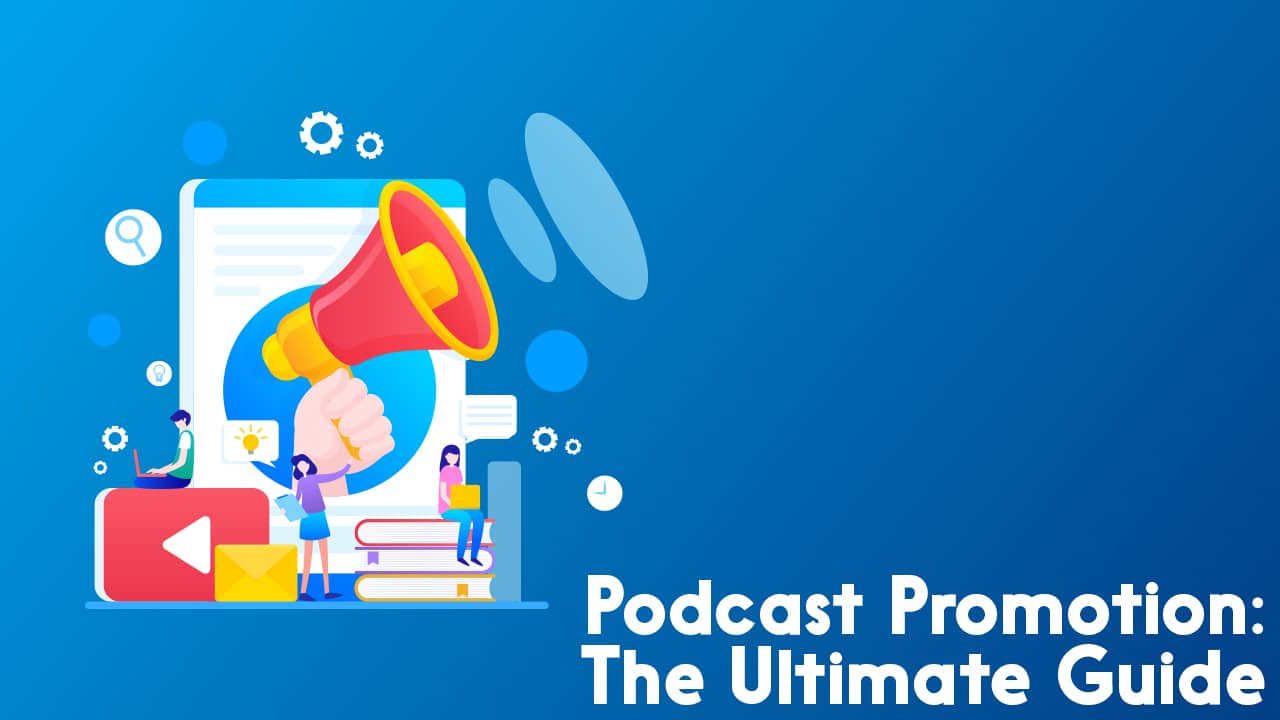In This Episode and Other Podcast Marketing Crimes
I’m at the age where I like children to avoid my outdoor living space, and the gain is always too high. This means that there are times when I yearn to become the Gordon Ramsay of podcasting. (As I said in a previous article, I’m leaning more into me) Nothing wrankles my cankles more than podcast marketing gone bad.
Ya’ll Are Killing It
And not in a good way; that would make a fantastic true crime podcast. So, it’s time for some tough love and rehabilitation.
15-year-old me once found herself face to face with the stereotypical grey-haired, pipe-holding professor. My parents were throwing a dinner party. Attendance was mandatory. In defiance, I’m wearing a t-shirt to a semi-formal event.
“Do you work for that company?” he asked earnestly.
I said no, thinking what an odd question. It was a popular brand at the time. How did he not know this is a trendy brand?
He isn’t done with what I now realize was a teachable moment (before they were cool), “Then why are you advertising them for free?”
My First (Podcast) Marketing Lesson
That question changed everything for me. I still wear branded t-shirts. But there’s a why behind that. I love the brand and intentionally use my dollars to support them. A t-shirt is one way I share that love with others.
Successful Marketing Isn’t Always Obvious
We’ve all seen those Facebook ads that shout BUY THIS!!! Or, SIGN UP NOW!!! It’s icky. It feels disingenuous. It’s a nuisance in your feed.
But you’ve probably had times when an ad made you stop, read, maybe click and possibly buy. You connected to that ad. It wasn’t a nuisance. Good marketing is relevant, engaging, and helpful to your ideal audience members (also known as most fans of your show topic).
Good marketing doesn’t feel gross. You don’t feel marketed to. The product or brand does something you need or is meaningful enough to start building a relationship. You may even end up a regular customer. The same is true for podcast marketing.
Most Podcasters Are Shouting

“NEW EPISODE ALERT!” It’s terrible podcast promotion. And frankly, it’s disturbing my peace. But we’re not accusing you of noise pollution… yet.
No, we’re starting at the very, very beginning.
Welcome to Podcast Marketing 100
Because podcasters miss several critical pieces to audience growth. These are absolute must-dos if you want any podcast promotion you do to work even a little bit.
Oh, and it drives me absolutely bananas. But I’m here to help.
The Tools You Didn’t Know Were Tools
These range from your social media profiles to those fields you fill out and add files to in your podcast host. It’s anywhere online where you can input the information to share with others. Utilizing these input spaces correctly is your first killer podcast marketing strategy.
It’s so basic that many industry experts don’t realize they need to tell you. For some, it’s an intuitive step. For the rest of us, not so much.
The First Step to Promoting Your Show
Fill out all those fields correctly, everywhere. And I mean everywhere; I can’t stress this enough. Ideally, this happens BEFORE you make a single social post or buy a Facebook ad for your show.
Certainly, before you hire someone like me to help you with podcast marketing.
The how is easy: go to every single social media site where you have a profile. This includes your personal profile, your professional profile, and your show’s profiles. (excluding places where it’s unsafe and/or illegal to do so)
Then ask yourself the following questions:
- Is it clear you have a podcast?
- Does the displayed URL take you to a website where anyone on any device can push play within two clicks?
- Do the images in your profile reinforce that you are a podcaster with a podcast and what that podcast is about?
- Are the hashtags relevant to the audience you want to build?
- Does the bio convey you are a podcaster with a show that inspires a potential audience member to click the URL displayed in your profile?
If you answered YES to all of those questions, congratulations. You think you’ve nailed this piece of podcast marketing, but I don’t believe grading yourself is enough here.

Now, email five people who always tell you the truth. Send them the URLs to your social profiles. Ask them the above five questions.
Throw in this bonus question while you’re at it:
What do you think my podcast is about? Because if they can’t or if they get it wrong, your podcast description needs work.
Take in their feedback and revise your profiles, and show descriptions. Repeat as needed. It’s a process, but so is podcasting.
You’re Now 50% Better at Podcast Marketing.
I love that! Now, go be social on social media. People will find your podcast because you’re so cool and interesting they want to check out your profile. They’ll see your show presented like a pro and (fingers-crossed) will click play. Yay!
Successful Podcast Promotion Step 2
Hop onto the podcast app of your choice. Unsubscribe from your podcast. Now search for the topic of your show.
If your show is about the business of podcasting, that’s your search term. If your show is about Tudor history, that’s the search term.
Is Your Show Discoverable?
If your show was somewhere in the results, WELL DONE! You produce a discoverable and marketable show.
If not, we need to fix it.
So, we need to know what podcast apps look at when a user searches. And I have good news. The most popular podcast app globally gives out that information freely.
How Apple Podcast search works:
Here’s Apple’s explanation of what happens behind the scenes when you type a query into Search:
“Search finds the best possible match to your search term and presents the most relevant results at the top. Some of the main factors that Apple Podcasts uses to order your Search results include:
- Metadata: this includes the show name, channel name, and episode title
- Popularity: podcasts with large followers and plays in Apple Podcasts
- User Behavior: podcasts with high engagement, such as those that are played or followed from search results
Like charts, while ratings, reviews, and shares help indicate a podcast’s newness, popularity, and quality, they are not factored into Search results.”
Sidebar: Apple says ratings and reviews are not factored into rankings or search results. Don’t ask for ratings or reviews in every episode. You’re wasting your breath. Ask listeners to share your show instead. Please. I’m begging you.
(And share this article with a podcaster in need, too)
Too Bad. That Show Sounded Interesting.
“I can’t remember what it’s called” is a problem I face often. Except most indie podcasts aren’t very findable via search. Your show’s metadata matters in this scenario.
Guess what all search engines search? Metadata. Google may search in a deeper, more expansive way, but every search engine looks for clarity and relevance. They hunt for accurately described content relevant to a user’s inputted search terms.
If you have your show’s topic in your show’s name and the episode topics in your episode titles, your podcast is discoverable. And discoverability is important for audience growth.
In This Episode, We Waste Everyone’s Time
Despite descriptions not being searchable, they are still useful. They’re the podcast promotion. Or, in simpler terms, they communicate what your content is and why a potential listener should push play.
The most important part of your episode’s searchable text is what’s displayed in the podcast app a potential listener is using. How much is seen by the eyes varies from app to app, device to device. Regardless, we can reasonably assume a show’s name, episode titles, and at minimum, the first sentence of the episode description are visible.
Related Article
How to Write a Great Podcast Description: Six Tips (And Why It Matters!)
A podcast’s description can make or break the growth of a show. Here’s how to get it right. Find out more »
(Note that the episode description is different from the show notes)
Use your show’s name, what you call your episode, and the first sentence of the episode description to entice your ideal audience. Combining keywords plus captivating text is a simple way to grow your audience.
Pro Tip: Starting a daily Six Word Story practice is a fun way to learn how to say more with fewer words. And getting to the meat of your titles and descriptions sooner will hook potential listeners. Best of all it only costs you time.
Words and Phrases That Make Descriptions an Inefficient Tool
You have a finite amount of space to inform the viewer why they should care about your content. Plus, people make the decision to stop or keep scrolling in a matter of seconds. With limited space and time, how well you can communicate matters.
The following phrases are sabotaging your audience growth:
- In this episode
- Joining us or We talk to (or any related phrase)
- Words used to denote time (Today, Yesterday, Month)
- Podcast (also should not be your show title)
- Show (also should not be your show title)
And this might be controversial, but unless your guest has a large following (meaning people are searching for interviews that feature them), don’t put their name at the beginning of your episode title.
Michelle Obama and How to Make a Magical Podcast, yes.
Carrie Caulfield Arick and How to Make a Magical Podcast, no.
I’m not Michelle Obama. It makes my mom happy to see my name in a podcast episode title, but few others. Instead, tell me the WHAT and WHY of your show or episode.

Ask yourself what your listeners care about when crafting titles and descriptions. Put that first. For instance, How to Make a Podcast Magical with Carrie Caulfield Arick.
And, you can skip tacking my name on the end. Cause you know what people are searching for? How To Make a Podcast. Boom!
Relevant, Engaging, Helpful
If we go back to what Apple Podcasts tells us about search, we’ll see the phrase User Behavior. User behavior is how people react when they experience the first touch point, literally.
Do they click on it for more information? How about pushing play? What about links in your show notes? Do they click on them? How long are they listening? Do they share the episode? Or do they scroll right past it? What response does your content cause?
Apple is weighing the actions people take when your show is in front of them. They don’t disclose how it’s weighted, but we can assume that if a person scrolls past your podcast, it’s not good. It’s one reason a show ends up at the bottom of search results. It could also be why your show may never end up in the “You Might Also Like” section.
The goal is to capture listeners when you appear in search (or anywhere else). If you want your podcast to grow, you must hook the listener. Make them care.
All marketing is, at its core, communication that’s suitable, appealing, and valuable to your ideal audience members.
Marketing Is Simple, Yet Not Easy
In my early days as a professional podcast producer, I was guilty of using phrases like ‘in this episode,’ too. I’ll never forget the day I was looking at a client’s show on iTunes and saw it:
In this episode, a guest joins us…
In this episode, a guest joins us…
In this episode, a guest joins us…
In this episode, a guest joins us…
In this episode, a guest joins us…
I was mortified. I’d inadvertently introduced content I was excited to share, in the most mind-numbing way. I didn’t communicate what the show was about and why it was relevant to anyone (other than the guests’ mothers).
It took me a while to get the hang of eliminating ‘in this episode’ and other filler words. One hot tip: invest in an app like Grammarly. Then use it often. It’ll get you to juicy, enticing ideas faster.
Related Article
Podcast Promotion: How to Promote a Podcast & Build an Audience
Podcast promotion takes many different forms. In this guide, you’ll find tips and tactics to suit any show. Find out more »
Podcast Promotion Starts With Effective Communication
It’s not necessarily quick, and it’s definitely not flashy. But it does work. And we are in the business of communication. Having these foundational elements will move the audience’s growth needle.
It’ll help people discover your show. Then they’ll want to engage with you, first by pushing play. They’ll realize your content is helpful and relevant to their lives.
And maybe they’ll even want to wear your branded t-shirts, too.



